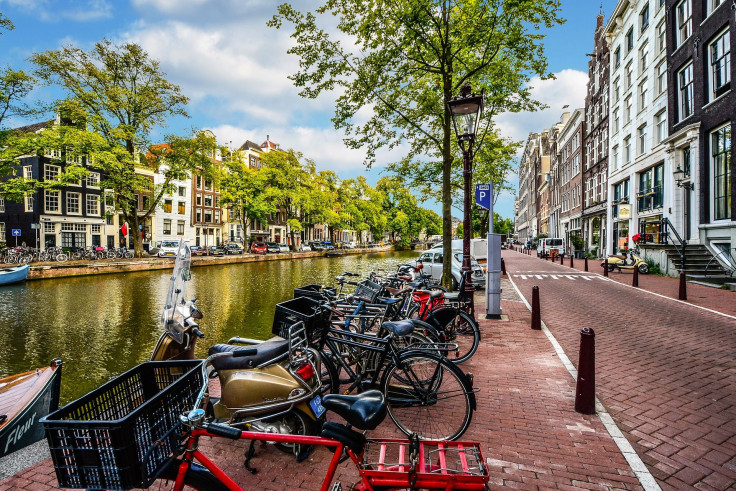Floating City: Will Rising Sea Levels Force People To Move Into Ocean Homes?

As the world population continues to rise and open space becomes more scarce, water might become the next human frontier, in the form of a floating city.
According to a report from news service Agence France-Presse, Dutch researchers have a model for such livable space, which could include homes, farms and parks. The news agency says the floating city concept could become a reality within a couple of decades for the Netherlands, a small country in Europe where space is at a premium and which has a history of taming water for human habitation — Holland, including the capital Amsterdam, is notorious for its canals, which have been used for defense, irrigation, for travel and for improving city habitability.
Read: Does Climate Change Threaten Your Cup of Coffee?
“In these times of rising sea levels, overpopulated cities and a rising number of activities on the seas, building up the dykes and pumping out the sands is perhaps not the most efficient solution,” Olaf Waals, from the Maritime Research Institute of the Netherlands, told AFP. “Floating ports and cities are an innovative solution which reflect the Dutch maritime tradition.”
The Netherlands’ concept, a project called “Space at Sea,” includes 87 triangular pieces of various sizes that would come together to make almost 2 square miles of space, a floating island of concrete or steel that would be anchored to the seafloor and attached to the shore. For now, however, it is just a small wooden model.
According to AFP, experts are exploring how such a structure would withstand wind and storm conditions, how it could be made self-sufficient in terms of energy usage, and how it would affect marine life.
“Technically it could be feasible in 10 to 20 years from today,” Waals told the news agency.
If floating cities were to become the homes of the future, there is plenty of space to work with: Oceans cover more than 70 percent of the Earth’s surface.
The Netherlands is not the only nation to explore this idea. The French Polynesia government, for example, is thinking about building a bunch of habitable floating islands in its area of the South Pacific Ocean. The Seasteading Institute in California, a group geared toward making such water cities a reality, is behind the idea. Part of Seasteading’s goal is to help people who in the future could be displaced by sea level rise drowning their current land-based homes.
Read: Is It Going to Rain in the Middle East? Maybe in 10,000 Years
Part of the concept requires self-sustainability, in terms of necessities like agriculture and health care, which makes it more complicated than it sounds.
The idea might work in French Polynesia because there aren’t a lot of high waves — one factor that would threaten an ocean settlement. In that respect it might represent a pioneer project that could set a precedent for others to follow.
With space on land running out, “the Netherlands will have to divert back toward the water,” MARIN director Bas Buchner said, according to AFP. “And we have always been pioneers in this fight.”
© Copyright IBTimes 2024. All rights reserved.





















